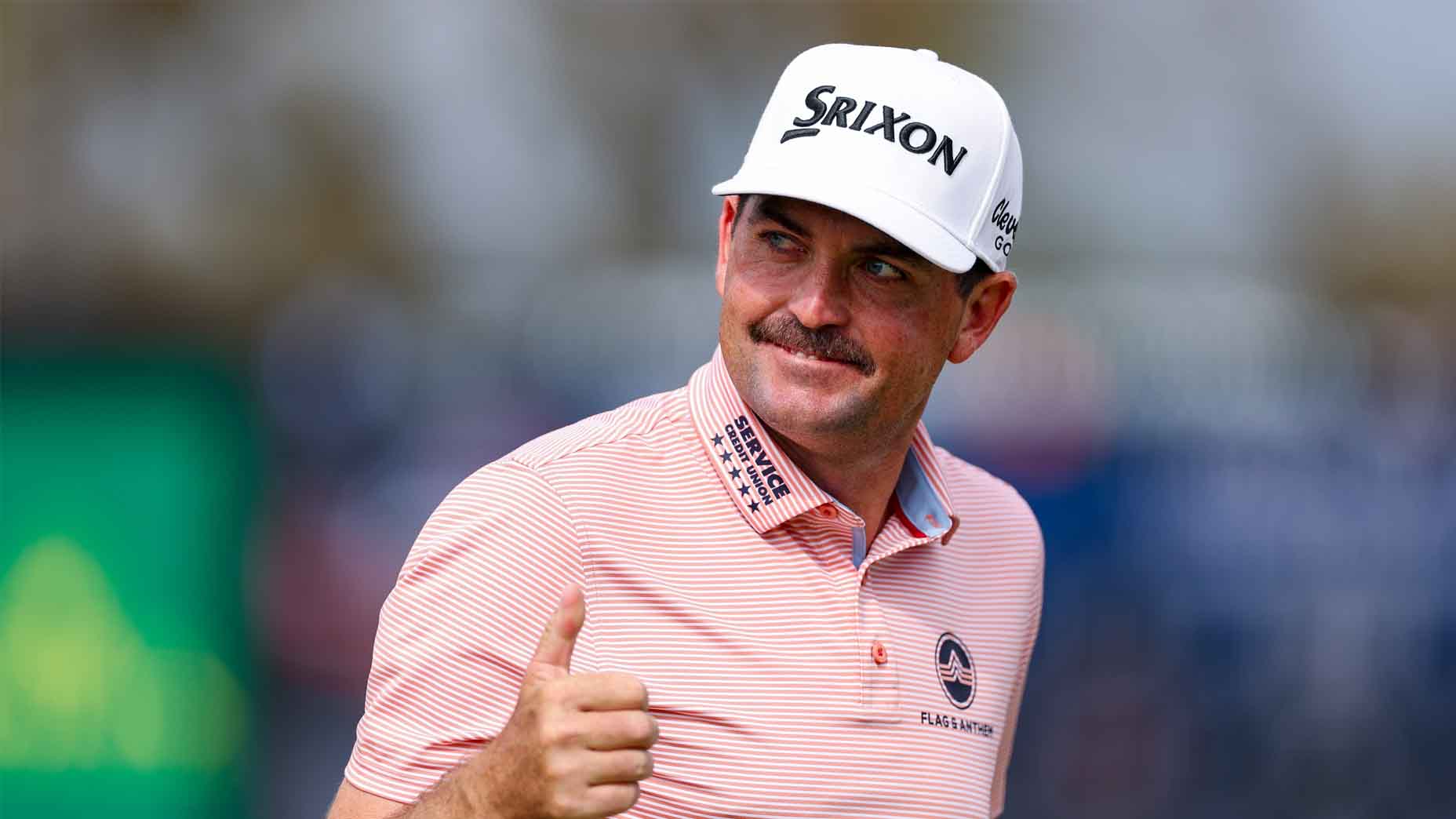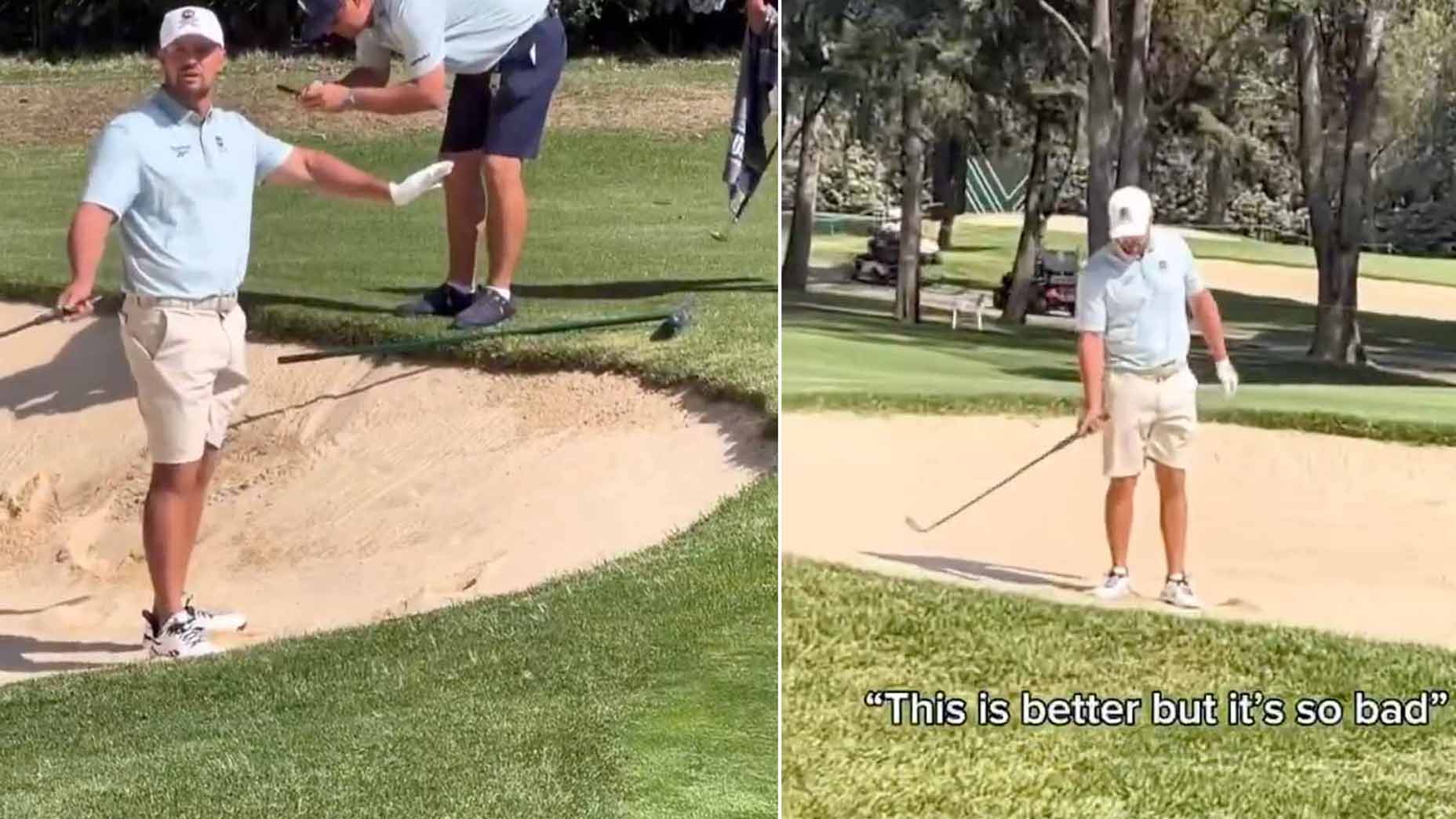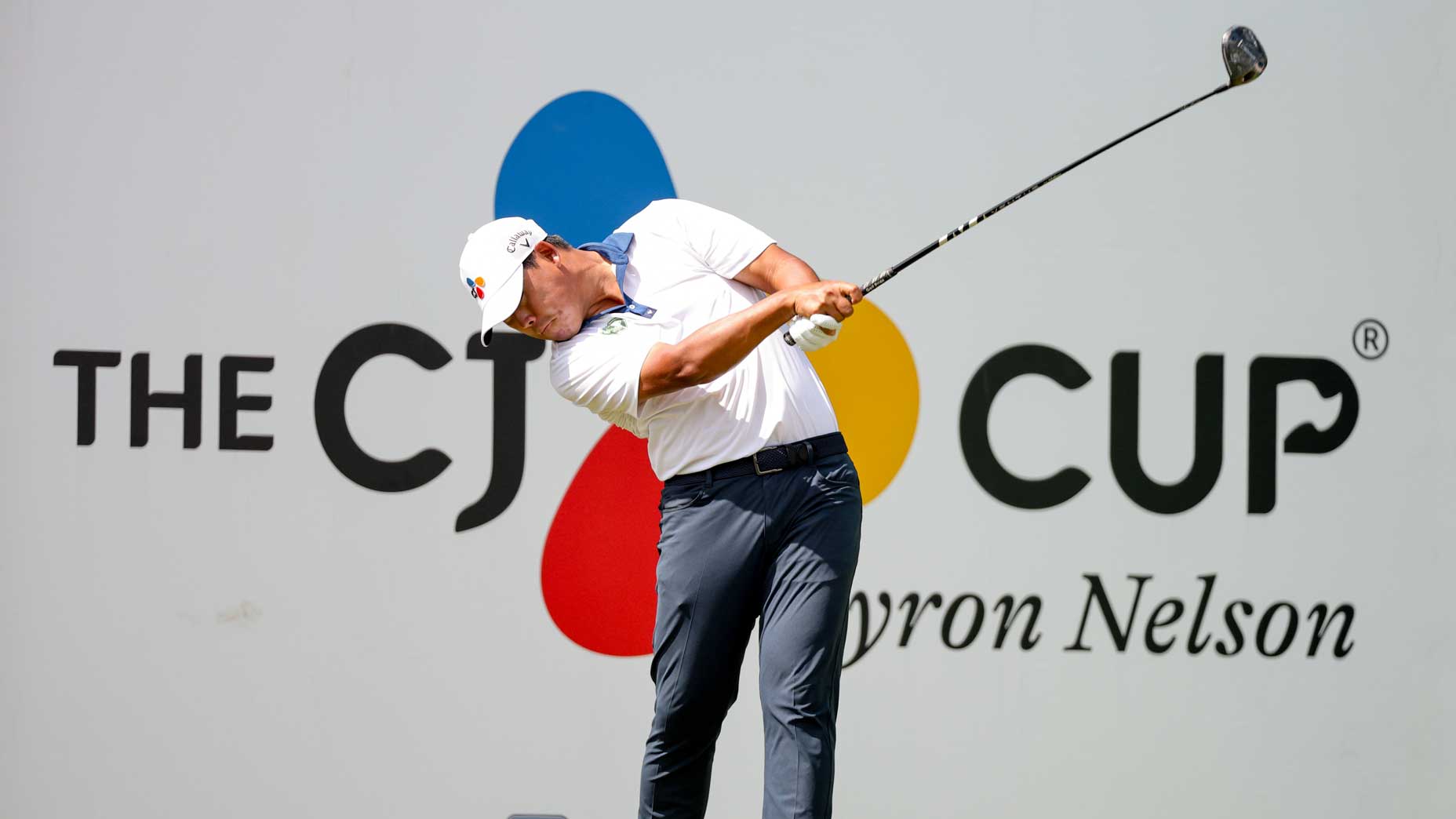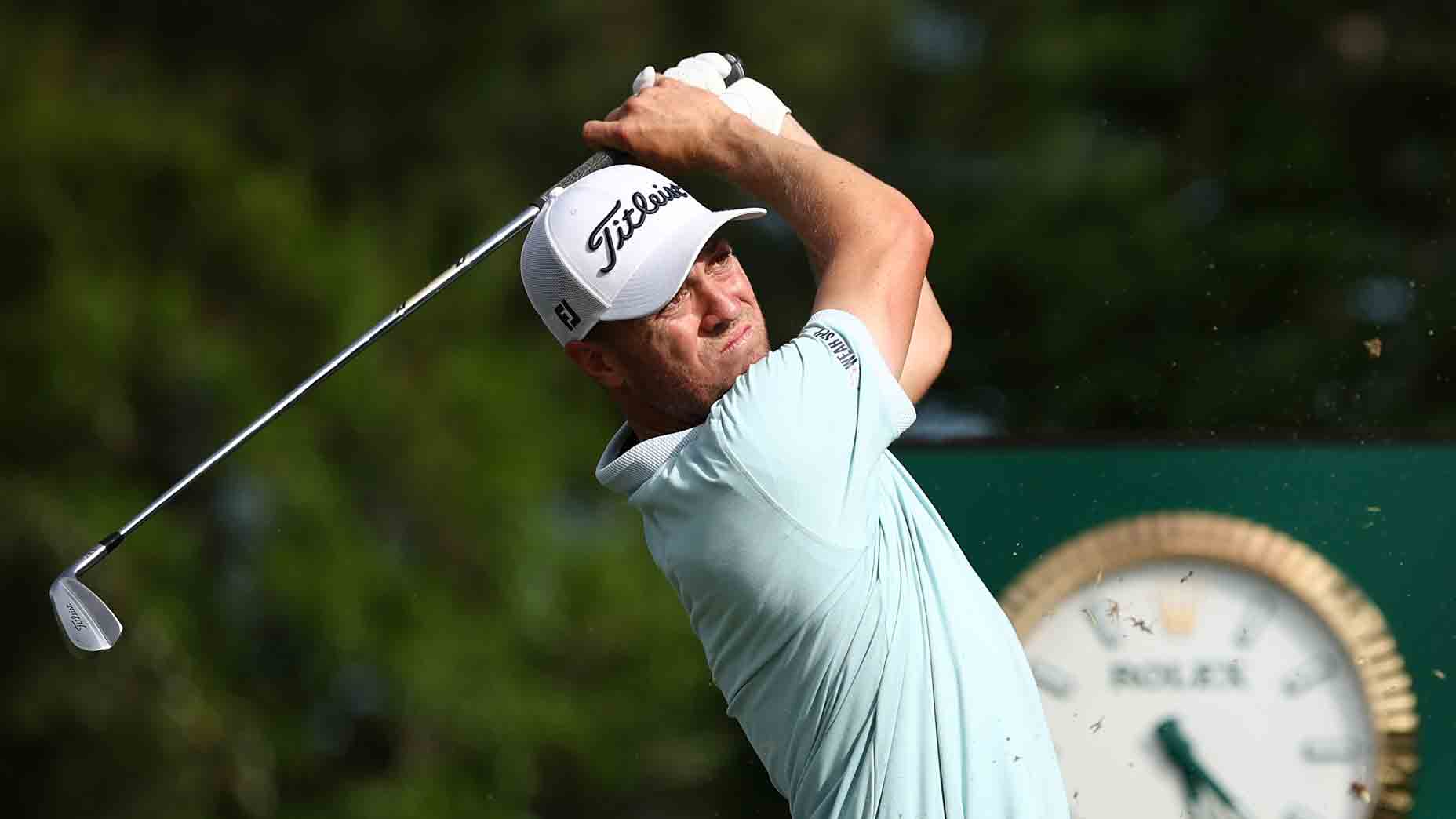BOCA RATON, Fla. – I like the Pebble Beach tournament, but late on Sunday afternoon, I had no earthly idea what was going on out there. I was here, in the warm, humid air of South Florida, at a senior event called (this year) the Boca Raton Championship. There were maybe a thousand of us on the scene and any sentient being had to be absorbed by the drama unfolding on a flat, pleasant track we walked, the Old Course at Broken Sound. The leader (Mark Calcavecchia) was leaking oil and the chaser (Bernhard Langer) was lighting matches. Yes, those two! Let’s do the time warp again!
Close your eyes and there they are on that day of reckoning, the Sunday of the 1991 Ryder Cup. Where did those 26 years go? The winner at Boca would be handed an odd-looking trophy of a generic cap-wearing golfer that might have been bought at a yard sale and a cardboard check for $240,000. Hello yesteryear! When Paul Azinger won Pebble in 1991, his payday was $198,000. The runner-up that year was Brian Claar. On Sunday, Claar was following Calc and Langer as a rules official.
At Kiawah in ’91 — Ryder Cups were played in odd years before the terrorist attacks of Sept. 11, 2001 — Calc shanked his tee shot into a pond on the par-3 17th in his match against Colin Montgomerie. At the moment, any dry shot pretty much would have assured the U.S. a point it desperately needed. But Calc, who has always played emotional and sometimes frail golf, could not summon what he needed when he needed it. That’s golf. That’s all of us playing golf, though some more than others.
Langer is on the other end of the spectrum. Then and now, and throughout his 40-year career, you have almost never seen him play emotionally wrought golf. What made the final moment of the ’91 Ryder Cup so stunning, when Langer missed that five-footer on the final green in the final group, was his reaction to it, the deep, primal anguish. His miss meant the U.S. had won the Ryder Cup. Langer missed and Calc could breathe. Thank you, brother. They’ve been linked ever since.

And now it was getting on 27 years later. In the Broken Sound pro shop, a woman half-shouted at Calc, via the TV screen above her: “Don’t cave under the machine’s pressure!” Langer is famously German, and the Mercedes emblem sewn on the right chest of his shirt seems like more than an endorsement. There is something machinelike about his golf.
Langer is a local — he lives in Boca — and while he did not have the support of that woman in the shop, he surely had a following, starting with his grown daughter, Jackie, who was caddying for her father for the first time. (Langer’s regular caddie, Terry Holt, will be back this week, when the seniors play in Naples.) No question, though, Langer is the closest thing golf has these days to a golfing machine, accumulating top 10s and wins at a pace that brings to mind Tiger Woods, circa 2000. Last year, Langer won five times in 19 starts.
Calc lives about an hour north of here, but his hobbies (beer and bowling) and let-it-all-hang-out demeanor have always made him easy to relate to, in good times and especially bad. Last year, his back was bad, his attitude was worse and his scores were lousy. Then he had offseason back surgery. On Sunday, he had his wife, Brenda, caddying for him, reading the occasional green, reminding him to follow-through on his putts. A lifetime in the game and still looking for swing thoughts.
In the final round, on the par-3 16th, Langer, having reduced his deficit from three shots to one, hit a gorgeous through-the-wind, over-the-pond-and-trap tee shot that finished hole-high and maybe 15 feet from the flagstick. Calc followed by dumping one in the water in front of the green. His bogey to Langer’s par meant they were tied for the lead at 16 under with two holes to play. It mattered. They could have been playing for $2,400 or $2.4 million. Somebody was going to win and somebody was going to lose and it mattered.
Wow.
Bernhard Langer misses short par putt on No. 17.
Now @MarkCalc heads to the par-5 18th with a 1-shot lead @BRChampionship. pic.twitter.com/9QmBJeo2og
— PGA TOUR Champions (@ChampionsTour) February 11, 2018
I don’t know what it is about the Champions Tour. Unless I’m watching one of the three majors — the senior versions of the British Open, the U.S. Open and the PGA Championship — I find it pretty lifeless, joyless and unexciting on TV. But whenever I go in person, I often find the events to be ridiculously interesting. Part of the in-person appeal is that the players hit a lot of squirrelly shots, but still get the ball in the hole with amazing efficiency. You have to see it to believe it, and to learn something from it. Part of the live appeal is you can walk where you like and actually see the action. Watching a senior tournament in person is not the military exercise watching a PGA Tour event can sometimes be.
But the most significant thing is the long, shared, intertwining histories of the players, if you are aware of them. The very thing we’re talking about here. Langer, now 60, flinched. He hit a poor, rushed par putt on 17. He made another bogey on 18 and Calc won by two.

“I thought about [Kiawah] a lot,” Calc said in his winner’s press conference. “I can still see that putt [to win] he hit. He hit a good one. It just broke, a lot. What was that, 27 years ago? I remember what I said to him when we were walking by each other. It was something like, `God still loves us.’ And he goes, `Yeah, I guess.'”
Amazing! That sounds more like a Calc line, but who knows?
He spoke for a minute about how they used to both stay at Mark McCormack’s house at Bay Hill, when they were both with IMG. “We’d have dinners and have a glass or two of red wine,” Calcavecchia said. “He’s really a very personable guy and I used to have a lot of good times with him.” Earlier, he had talked about Langer’s mental strength, which he said might be the best in all of golf. That was a considered opinion. He was thinking about Tiger Woods in his prime and Jordan Spieth today. “Bernhard knows his game, his capabilities, he knows how to manage a golf course better than anybody in the world,” the winner said.
In ’91, the ultimate golfing machine gave a gift to Mark Calcavecchia that he carries to this day. How that influenced Sunday’s play is hard to say, but it was in the memory bank. It made the whole thing so much more interesting, more interesting than just the shots played.
“This game,” Calc said. “It’s so up and down.”
And down and up and never ending.






